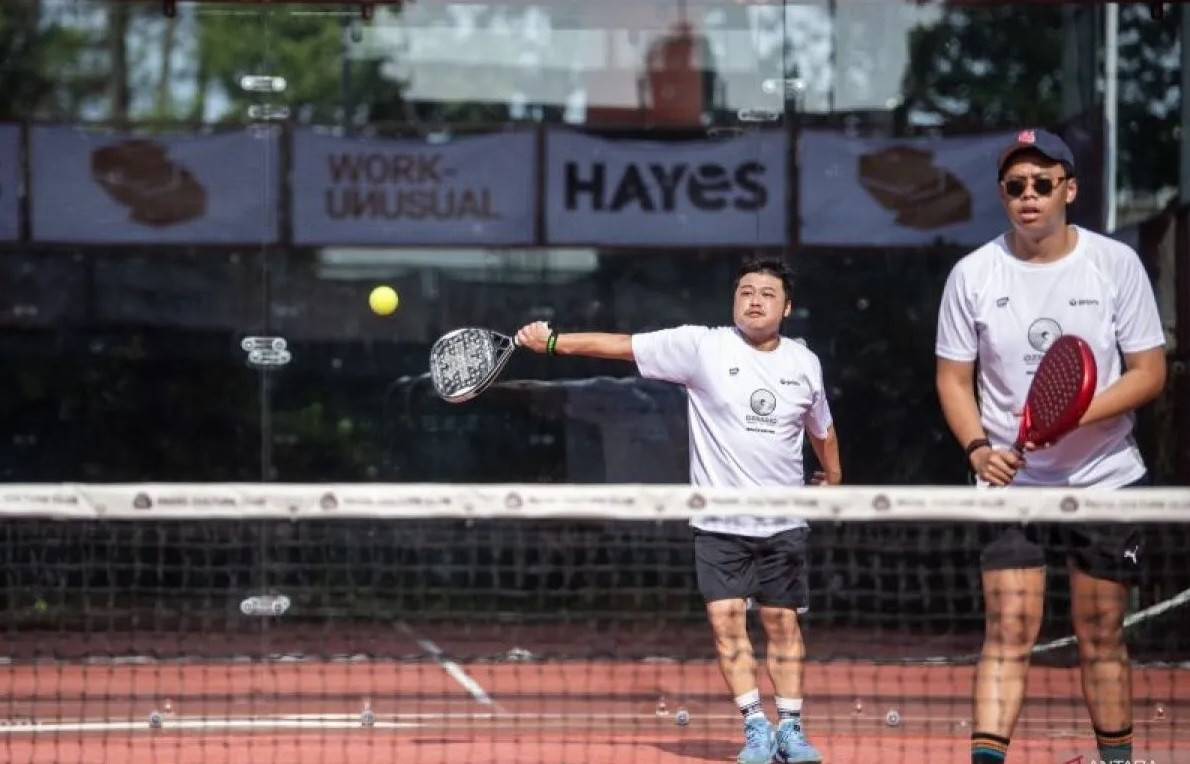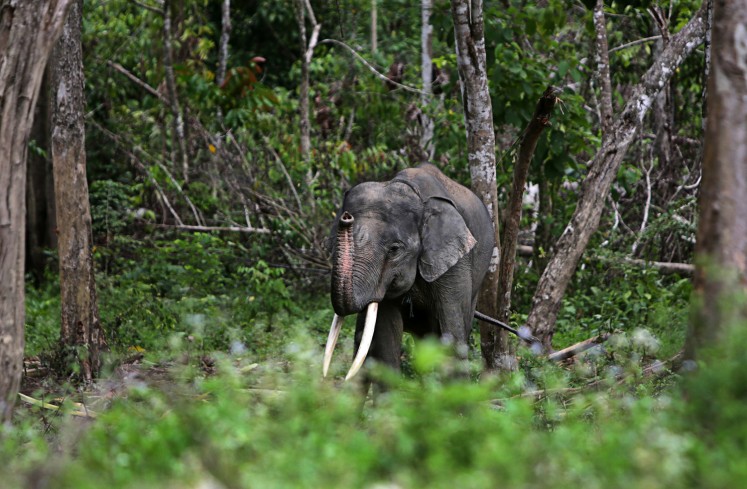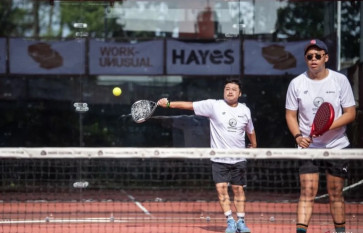Popular Reads
Top Results
Can't find what you're looking for?
View all search resultsPopular Reads
Top Results
Can't find what you're looking for?
View all search resultsWhy Jakarta’s padel tax misses the mark, reinforces inequality
At a time when governments are promoting healthier lifestyles and community-based wellbeing, Jakarta has chosen to tax the very spaces where those goals are pursued
Change text size
Gift Premium Articles
to Anyone
 Solid foothold: A padel player (left) hits a return on Feb. 8, 2025 during a tournament at the Padel Culture Club in Bandung, West Java. The racket sport, which combines elements of squash and tennis and traces its origins to Mexico, has been gaining popularity since it entered Indonesia via Bali around 2020. (Antara/M. Agung Rajasa)
Solid foothold: A padel player (left) hits a return on Feb. 8, 2025 during a tournament at the Padel Culture Club in Bandung, West Java. The racket sport, which combines elements of squash and tennis and traces its origins to Mexico, has been gaining popularity since it entered Indonesia via Bali around 2020. (Antara/M. Agung Rajasa)
J
akarta’s newest status symbol is not a rooftop bar or a golf club membership. It is a weekend booking at a padel court. The sport, once obscure, now draws long waitlists and designer rackets. It promises not just fitness but belonging, a kind of aspirational leisure for the city’s young professionals.
Through the Jakarta Revenue Agency Head Decree No. 257/2025, the city has imposed a 10 percent goods and services (PBJT) tax on 21 types of commercial sport and recreation, slotting them under the same tax category as concert and amusement parks. The legal basis is found in Law No. 1/2022 on financial relations between central and regional governments, which allows local authorities to tax specific goods and services under broad categories like “entertainment”.
Yet when sport is taxed like a spectacle, the issue is no longer legal form. It is public meaning that raises harder questions: When government go looking for new tax bases, what do they choose to see? What do they choose to ignore?
Classification is central to how Indonesian tax law operates. It determines whether something is taxed, at what rate and under what rationale. Jakarta’s PBJT regime draws its authority from national law, but the problem lies in how that authority is exercised. The issue is not whether the city may impose the tax, but how it defines or fails to define, and what it is taxing.
“Entertainment,” as used in both the national statute and local decree, is a broad and slippery term. Traditionally, it has covered concerts, shows, exhibitions and other forms of passive amusement. The recent inclusion of sporting activity stretches that definition, both conceptually and legally.
Fitness classes, futsal bookings and yoga sessions involve physical participation, often with health or community benefits. Yet the new decree reduces these activities to their commercial wrapper and aesthetic value, treating them as spectacles rather than forms of public utility.
This is not just a semantic issue. When classification becomes untethered from substance, the legal rationale for taxation begins to fray. By flattening the distinction between passive entertainment and participatory sport, the policy risks converting a fiscal convenience into a doctrinal contradiction.


















